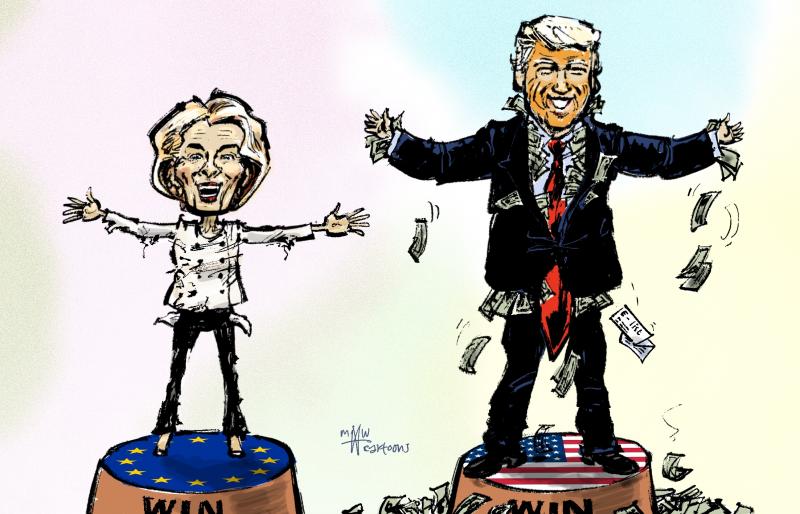There's nothing quite like the threat of transatlantic economic warfare to bring everyone together. On 27 July, European Commission President Ursula von der Leyen and US President Donald Trump sealed a trade agreement that will limit tariffs on most EU imports to the United States to 15 percent. The EU will also purchase 750 billion dollars worth of US-produced energy and increase its investments in the US economy by 600 billion, with particular focus on military equipment. The two leaders met in Turnberry, Scotland, where Trump was due to inaugurate a new golf course at his luxury resort.
Although the "biggest of all the deals" – in Trump's words – was presented by von der Leyen as a success for the European camp, it has left a bitter taste for some observers. While Trump may not have gone through with his threat to impose 30 percent tariffs, von der Leyen failed to achieve the "zero for zero" she had been hoping for. The "least worst option" received a lukewarm response among the EU-27, with some expressing overall satisfaction, while others, including France, lambasting the agreement as unbalanced and coercive.
Do you like our work?
Help multilingual European journalism to thrive, without ads or paywalls. Your one-off or regular support will keep our newsroom independent. Thank you!
















